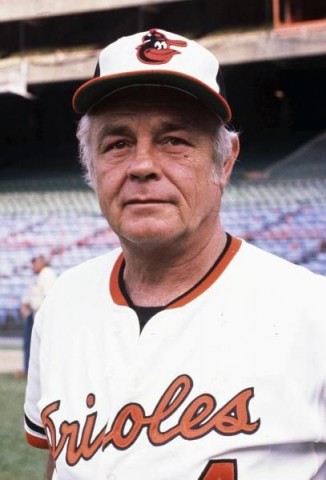I really appreciate this dartboard-riing analysis because it doesn't try to reduce the complex game of baseball to a single formula. It doesn't say "OBP+Power eqiuals winning baseball" because a team whose most obvious strength is OBP+Power might have just won the World Series. It allows for teams that for an entire season just outplay teams more gifted in certain common stats.
.
James published his original theory in December 2014. That's another way to say "Right after the Royals won their first pennant." He told us that the theory is true, just like the Pythagorean Theorem is generally true, but then ...
.
OK, we have established that it is generally true that good teams have good Strike Zone Winning percentages and bad teams have bad Strike Zone Winning Percentages, and we have established also that discrepancies between the strike zone and overall winning percentages, where they occur, are real phenomena rather than statistical mirages. At this point we can talk about the 1962 Houston Colt .45s.
.
... but then he isolated on teams that DEFIED the theory, to see what he could learn there. He started with the expansion Astros, 1962, and other expansion teams. He showed that the 1962 "Colt .45s" should have played .576 ball, but in reality played .400 ball (64-96). Game after game, the 1962 Astros got all the pitcher wins (Ks) and batter wins (BBs) -- and got thrummed out of the Dome on an every-night basis.
- There have been 14 times in history, and 13 times they played worse than their K's and BB's. (The Rockies were the exception.)
- Year Two Expansion Teams: 9/14 underplayed KW%
- Year Three: 11/13
- Year Four: 10/13
- First Five seasons combined: 79% of all expansion teams got kneed in their KW% man-regions
.
Have you grokked the big light bulb here?
These teams, as a group, won the K/BB battles ... but lost ALL THE OTHER BATTLES, usually quite badly. Yes, Virginia, there is such a thing as a team that throws in the towel. The 1962 Astros, for example, put the ball in play 200 (!!) more times than the enemy -- but the enemy totaled 189 doubles to the Astros' 170, and out-tripled them 61-47. They were even, impossibly, out-singled by 1,446 to 1370. I got yer batted-ball velocity right here, Voros.
We're not saying that K's, BB, and HR's don't count. They remain the most important things in baseball. But let's realize that a team CAN, quite feasibly, win the rest of the game by enough of a margin so as trump the TTO's. And it won't be just luck when they do.
......
ADDENDA (from James)
1. KW% works so well because it is impervious to home park.
2. Most of the teams that "permanently" won the K/BB battle were teams with one Aircraft Carrier SP. 1927 A's with Grove, 1952 Phillies with Roberts, etc etc etc.
3. The teams that were tremendously BETTER than their KW% were one of two types: (1) the 1960 Yankees types, with HUGE edges in home runs, or
4. Or teams won because they were (2) managed by Earl Weaver, Tony La Russa, Bobby Cox, or their ilk.
The 1968-85 Orioles outperformed their KW% for 18 straight seasons. Lemme chew on that a minnit. LaRussa had a 25-year run in which he was 21-4 against the KW%. Bobby Cox had Maddux, Glavine, and Smoltz, but his teams were better than them.
Last year, Lloyd McClendon wasn't better than Felix and Iwakuama.
Leading to ...
NEXT ARTICLE
Comments
It is almost impossible to outperform that stat for 18 straight seasons, well....unless you have Earl.
His teams took the walk, had power staffs, and were terrific with the up the middle defense (think Belanger-Grich-Blair).
Oh...they had some of those Robinsons and Boogs to swack some long shots, too.
